|
Product model
|
JFTSM-SFP-0155-85-2-LCD
|
Manufacturer brand
|
JFOPT
|
|
Package type
|
SFP
|
Optical connector
|
Duplex LC
|
|
Max data rate
|
≤155Mbps
|
Channel data rate
|
-
|
|
Effective transmission distance
|
2km
|
||
|
Wavelength
|
850nm
|
Operating voltage
|
3.3V
|
|
Fiber type
|
MMF
|
Core size
|
50/125
|
|
Transmitter type
|
VCSEL
|
Receiver type
|
IDP
|
|
TX power
|
-9.5~-4dbm
|
Receiver sensitivity
|
-18dBm
|
|
Digital optical monitoring(DDM)
|
YES
|
Receiver overload
|
-3dBm
|
|
Power consumption
|
<1W
|
Protocols
|
SFP MSA SFF-8472
|
|
Operating temperature(commercial)
|
0℃~+70℃
|
Storage temperature(commercial)
|
-40℃~+85℃
|
|
Operating temperature(commercial)
|
-40℃~+85℃
|
Storage temperature(commercial)
|
-40℃~+85℃
|
JFOPT continues to invest in optical transceiver production, covering a full range of optical transceiver such as 1*9, SFP, 10G, 25G, 100G, 200G, 400G, 800G GPON/EPON/XG/XGSPON OLT transceiver. At the same time, our company provides TOSA, ROSA, BOSA semi-finished device solutions for the downstream peer. JFOPT's production line has a daily production capacity of 10,000 optical transceivers and 20,000 optical devices. In addition, JFOPT's optical transceiver have industry-leading high temperature resistance and anti-interference capability, and are widely used in computing centers, operators, traffic security, power facilities and other industries.
The JFOPT SFP 155M 850nm LC DX Transceiver series is a compact, small form-factor pluggable module designed for duplex optical data communication, particularly suited for Fast Ethernet applications. Featuring a 20-pin SFP connector, it supports hot-plug functionality for easy installation and maintenance. Optimized for multi-mode fiber, this transceiver operates at a standard wavelength of 850nm. The transmitter section incorporates a high-performance multiple quantum well VCSEL laser, compliant with Class 1 laser safety standards under IEC 60825. On the receiver side, the module utilizes an advanced optical detection system, including an integrated GaAs detector preamplifier (IDP) mounted in an optical header and a precision limiting post-amplifier IC, ensuring reliable signal reception and processing. The SFP 155M 850nm 2km LC DX Transceiver series is fully compliant with the SFF-8472 SFP Multi-Source Agreement (MSA), guaranteeing industry-standard compatibility and interoperability for seamless integration into network systems.
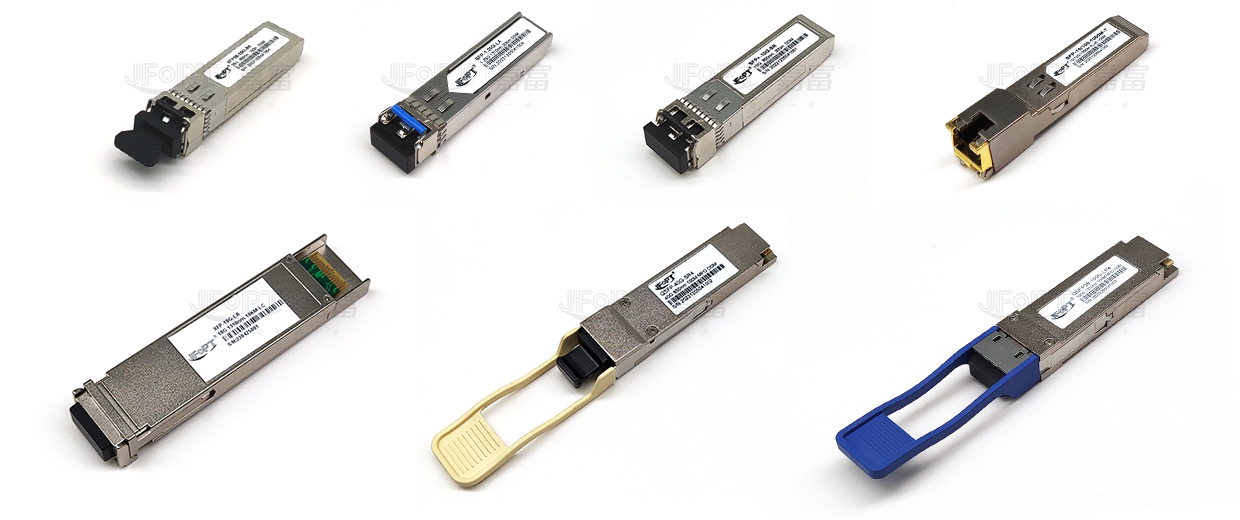
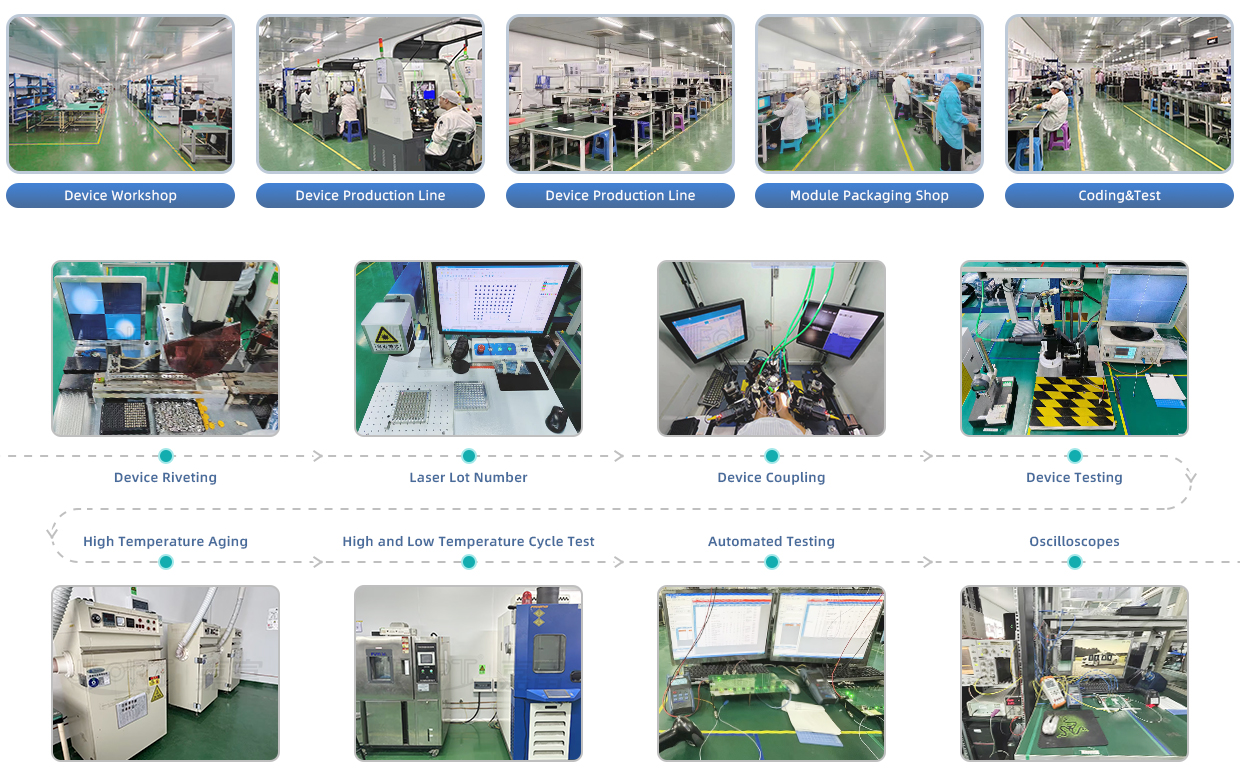
| 850nm VCSEL laser transmitter | 2km with 50/125 µm MMF 1km with 62.5/125 µm MMF |
||||||||
| Single 3.3V power supply and TTL logic inter | Hot-pluggable SFP footprint duplex LC connector interface | ||||||||
| Operating temperature Standard: 0℃~+70℃ Industrial: -40℃~+85℃ |
Digital diagnostic monitor interface compatible with SFF-8472 |
| Fast ethernet | Other optical links | |||||||

| Part No. | Data Rate | Fiber | Distance | Interface | Temperature | DDMI | |||
| JFTSM-SFP-0155-85-2-LCD | 155Mbps | MMF | 2km | LC | Standard | YES | |||
| Industrial | |||||||||
| Parameter | Symbol | Min. | Max. | Unit | |||||
| Storage temperature | TS | -4.0 | +85 | ℃ | |||||
| Supply voltage | VCC | -0.5 | 3.6 | V | |||||
| Operating relative humidity | - | - | 95 | % | |||||
Exceeding any one of these values may destroy the device immediately |
|||||||||
| Parameter | Symbol | Min | Typical | Max | Unit | ||||
| Operating case temperature | Tc | JFTSM-SFP-0155-85-2-LCD | 0 | - | +70 | °C | |||
| -40 | - | +85 | |||||||
| Power supply voltage | Vcc | 3.15 | 3.3 | 3.45 | V | ||||
| Power supply current | Icc | - | - | 300 | mA | ||||
| Date rate | FE | - | - | 125 | - | Mbps | |||
| Parameter | Symbol | Min. | Typ. | Max. | Unit | Notes | |||
Transmitter |
|||||||||
| LVPECL inputs(Differential) | Vin | 400 | - | 2000 | mVpp | AC coupled inputs | |||
| Input impedance (Differential) | Zin | 85 | 100 | 115 | ohm | Rin > 100 kohm @ DC | |||
| TX_disable | Disable | - | 2 | - | Vcc+0.3 | V | - | ||
| Enable | - | 0 | - | 0.8 | - | ||||
| TX_FAULT | Fault | - | 2 | - | Vcc+0.3 | V | - | ||
| Normal | - | 0 | - | 0.5 | - | ||||
Receiver |
|||||||||
| LVPECL outputs (Differential) | Vout | 400 | - | 2000 | mVpp | AC coupled output | |||
| Output impedance (Differential) | Zout | 85 | 100 | 115 | ohms | - | |||
| RX_LOS | LOS | - | 2 | - | Vcc+0.3 | V | - | ||
| Normal | - | 0 | - | 0.8 | V | - | |||
| MOD_DEF ( 2:0 ) | VoH | 2.5 | - | - | V | With serial ID | |||
| VoL | 0 | - | 0.5 | V | |||||
| Parameter | Symbol | Min. | Typical | Max. | Unit | ||||
| 50µm core diameter MMF | L | - | 2 | - | km | ||||
| Data rate | - | - | 125 | - | Mbps | ||||
Transmitter |
|||||||||
| Center wavelength | λC | 830 | 850 | 860 | nm | ||||
| Spectral width (RMS) | Δλ | - | - | 0.85 | nm | ||||
| Average output power | Pout | -9.5 | - | -4 | dBm | ||||
| Extinction ratio | ER | 8.2 | - | - | dB | ||||
| Rise/Fall time(20%~80%) | tr/tf | - | - | 3 | ps | ||||
| Total jitter | TJ | - | - | 1 | UI | ||||
| Output optical eye | IEEE 802.3 compliant | ||||||||
| TX disable assert time | t_off | - | - | 10 | us | ||||
Receiver |
|||||||||
| Center wavelength | λC | 760 | - | 860 | nm | ||||
| Receiver sensitivity | Pmin | - | - | -18 | dBm | ||||
| Receiver overload | Pmax | -3 | - | - | dBm | ||||
| Return loss | - | 14 | - | - | dB | ||||
| LOS de-assert | LOSD | - | - | -19 | dBm | ||||
| LOS assert | LOSA | -45 | - | - | dBm | ||||
| LOS hysteresis | - | 0.5 | - | - | dB | ||||
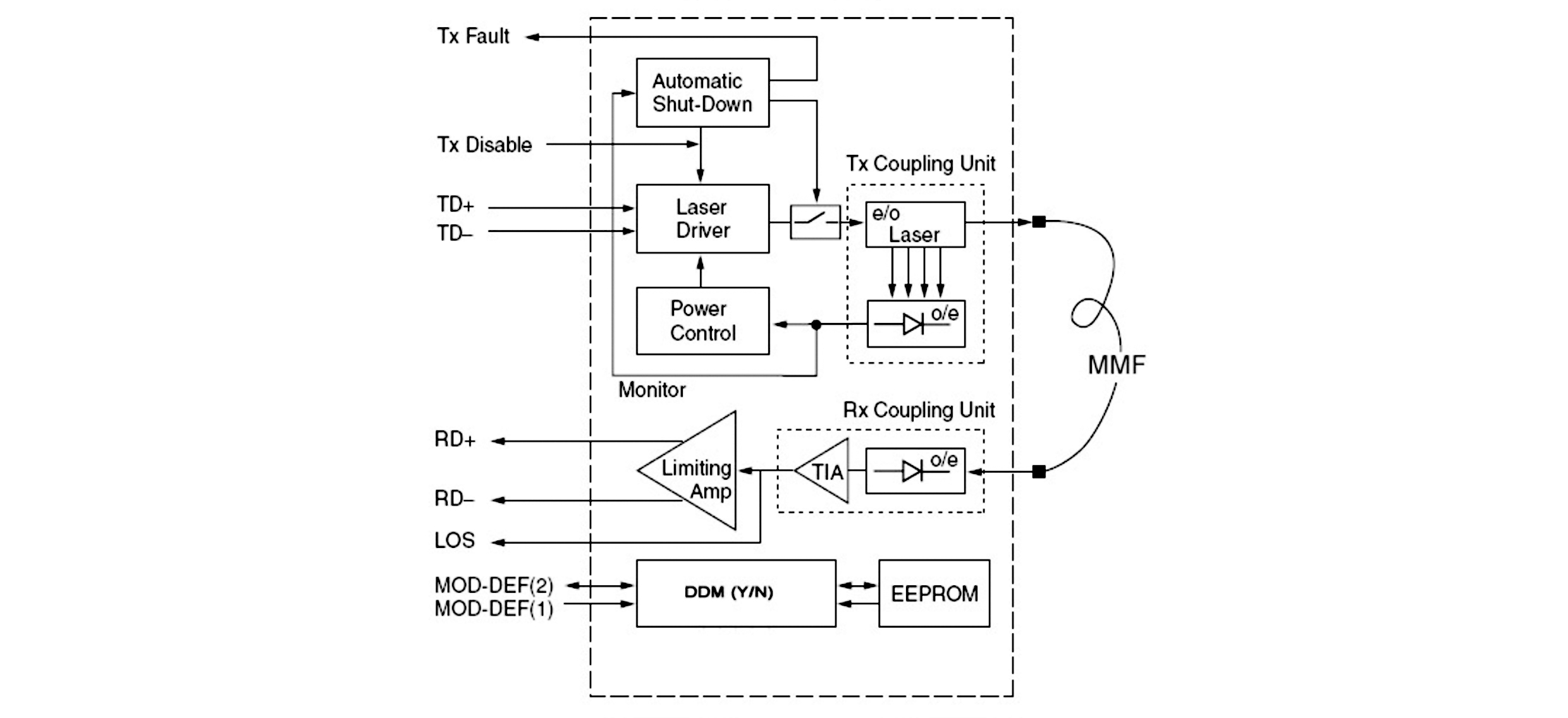
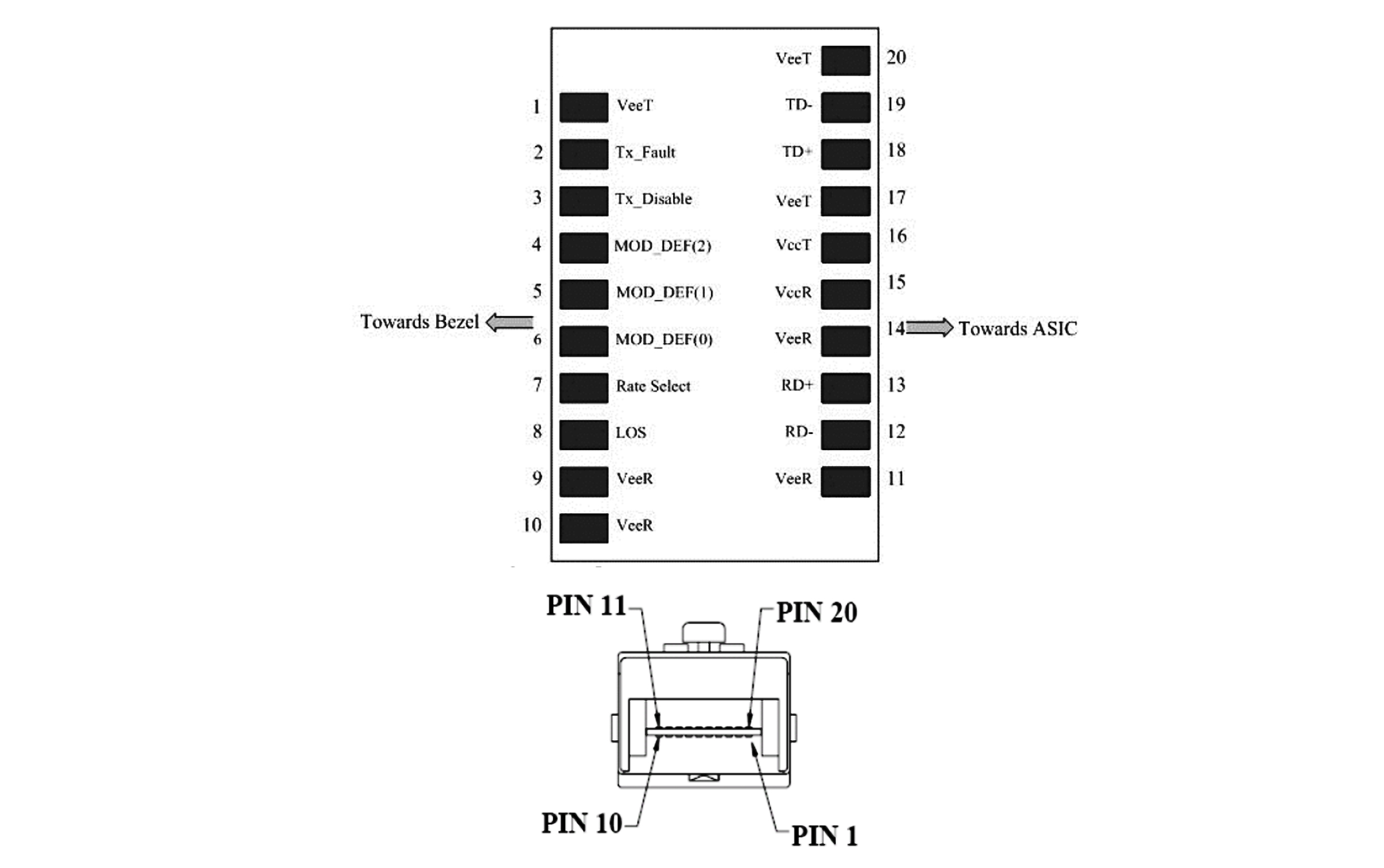
| Pin | Name | Function | Plug Seq. | Notes | |||||
| 1 | VeeT | Transmitter ground | 1 | - | |||||
| 2 | TX fault | Transmitter fault indication | 3 | 1) | |||||
| 3 | TX disable | Transmitter disable | 3 | 2) Module disables on high or open | |||||
| 4 | MOD-DEF2 | Module definition 2 | 3 | 3) Data line for serial ID. | |||||
| 5 | MOD-DEF1 | Module definition 1 | 3 | 3) Clock line for serial ID. | |||||
| 6 | MOD-DEF0 | Module definition 0 | 3 | 3) Grounded within the module. | |||||
| 7 | Rate select | Not connect | 3 | Function not available | |||||
| 8 | LOS | Loss of signal | 3 | 4) | |||||
| 9 | VeeR | Receiver ground | 1 | 5) | |||||
| 10 | VeeR | Receiver ground | 1 | 5) | |||||
| 11 | VeeR | Receiver ground | 1 | 5) | |||||
| 12 | RD- | Inv. received data out | 3 | 6) | |||||
| 13 | RD+ | Received data out | 3 | 6) | |||||
| 14 | VeeR | Receiver ground | 1 | 5) | |||||
| 15 | VccR | Receiver power | 2 | 7) 3.3V ± 5% | |||||
| 16 | VccT | Transmitter power | 2 | 7) 3.3V ± 5% | |||||
| 17 | VeeT | Transmitter ground | 1 | 5) | |||||
| 18 | TD+ | Transmit data In | 3 | 8) | |||||
| 19 | TD- | Inv. transmit data In | 3 | 8) | |||||
| 20 | VeeT | Transmitter ground | 1 | 5) | |||||
Notes:
1) TX Fault is an open collector/drain output, which should be pulled up with a 4.7K – 10KΩ resistor on the host board. Pull up voltage between 2.0V and VccT/R+0.3V. When high, output indicates a laser fault of some kinds. Low indicates normal operation. In the low state, the output will be pulled to < 0.8V.
2) TX disable is an input that is used to shutdown the transmitter optical output. It is pulled up within the module with a 4.7K – 10 KΩ resistor. Its states are:
Low (0 – 0.8V): Transmitter on
(>0.8, < 2.0V): Undefined
High (2.0 – 3.465V): Transmitter Disabled
Open: Transmitter Disabled
3) Modulation Absent, connected to VEET or VEER in the module.
4) LOS is an open collector/drain output, which should be pulled up with a 4.7K – 10KΩ resistor. Pull up voltage between 2.0V and VccT/R+0.3V. When high, this output indicates the received optical power is below the worst-case receiver sensitivity (as defined by the standard in use).Low indicates normal operation. In the low state, the output will be pulled to < 0.8V.
5) VeeR and VeeT may be internally connected within the SFP module.
6) RD-/+: These are the differential receiver outputs. They are AC coupled 100Ω differential lines which should be terminated with 100Ω (differential) at the user SERDES. The AC coupling is done inside the module and is thus not required on the host board. The voltage swing on these lines will be between 400 and 2000 mV differential (200 –1000 mV single ended) when properly terminated.
7) VccR and VccT are the receiver and transmitter power supplies. They are defined as 3.3V ±5% at the SFP connector pin. Maximum supply current is 300Ma. Recommended host board power supply filtering is shown below. Inductors with DC resistance of less than 1ohm should be used in order to maintain the required voltage at the SFP input pin with 3.3V supply voltage. When the recommended supply-filtering network is used, hot plugging of the SFP transceiver module will result in an inrush current of no more than 30Ma greater than the steady state value.VccR and VccT may be internally connected within the SFP transceiver module.
8) TD-/+: These are the differential transmitter inputs. They are AC-coupled, differential lines with 100Ω differential termination inside the module. The AC coupling is done inside the module and is thus not required on the host board. The inputs will accept differential swings of 400 – 2000mV (200 – 1000mV single-ended).


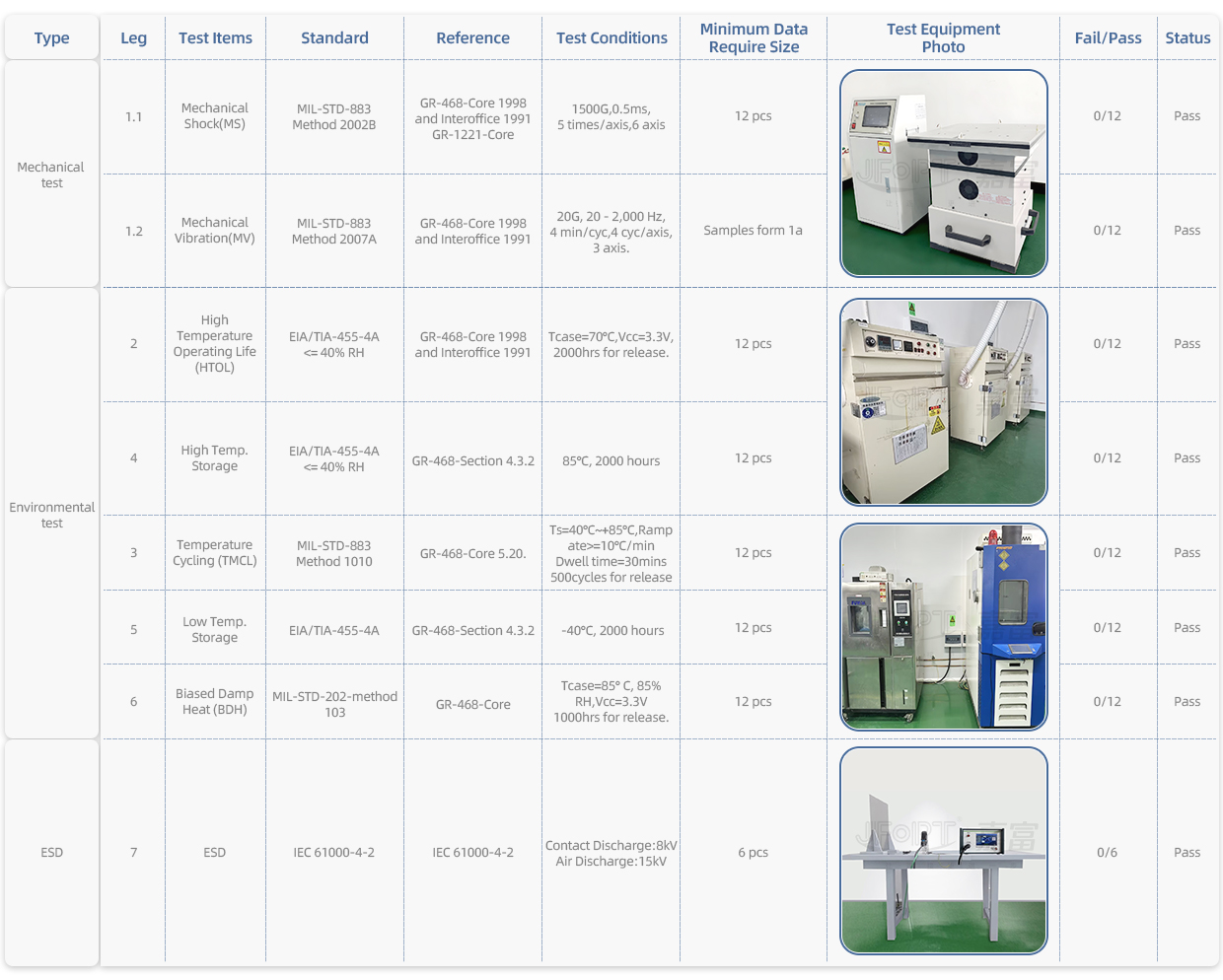


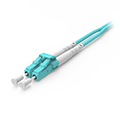
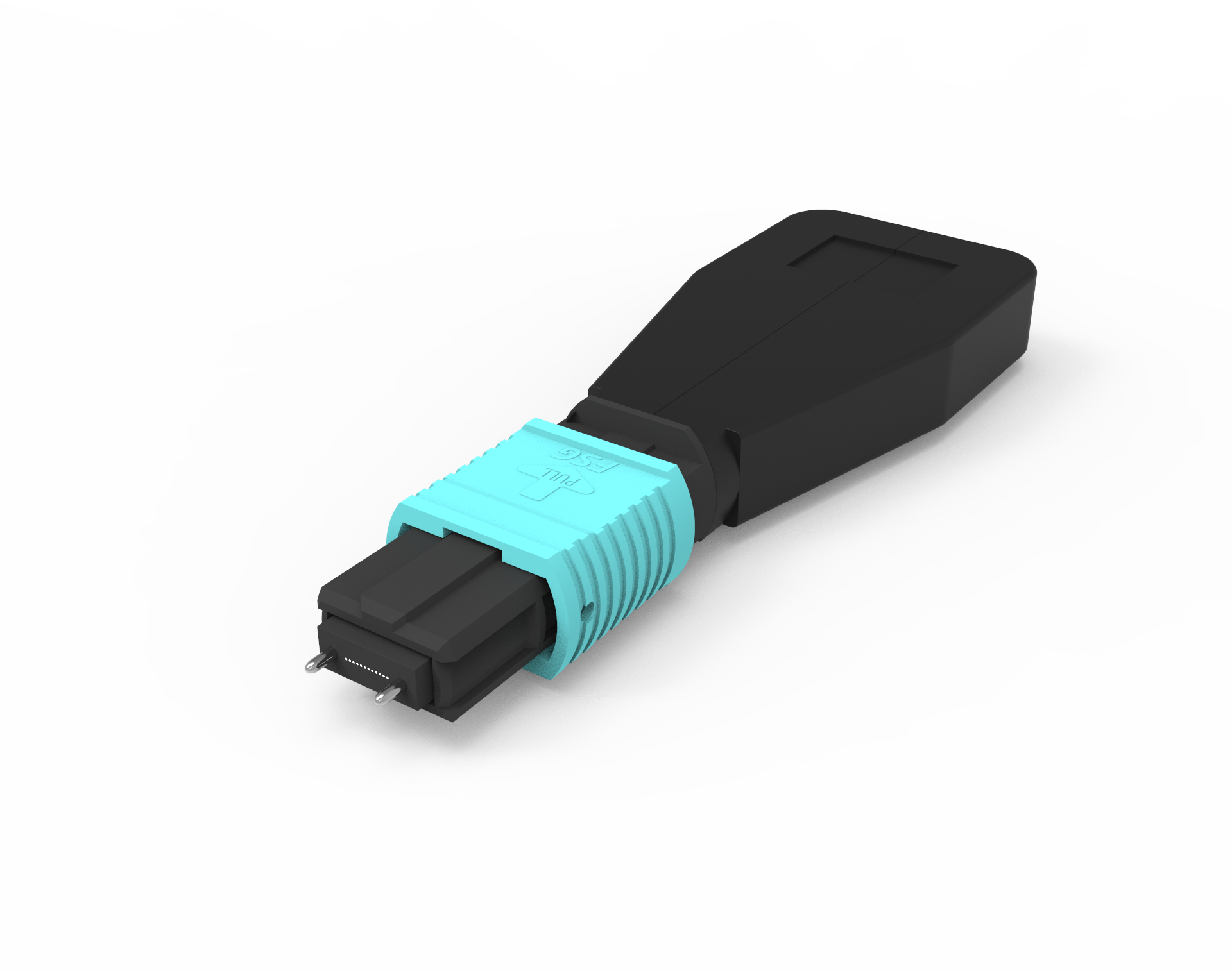
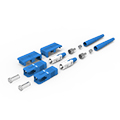


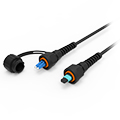
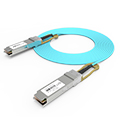
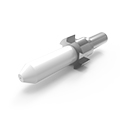
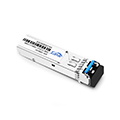
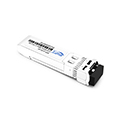
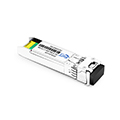
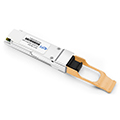
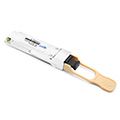

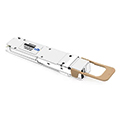
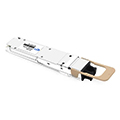
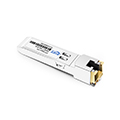
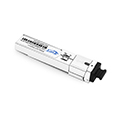

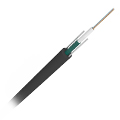
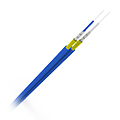
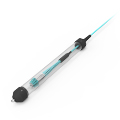

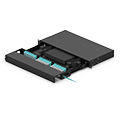
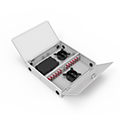

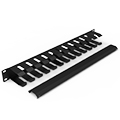
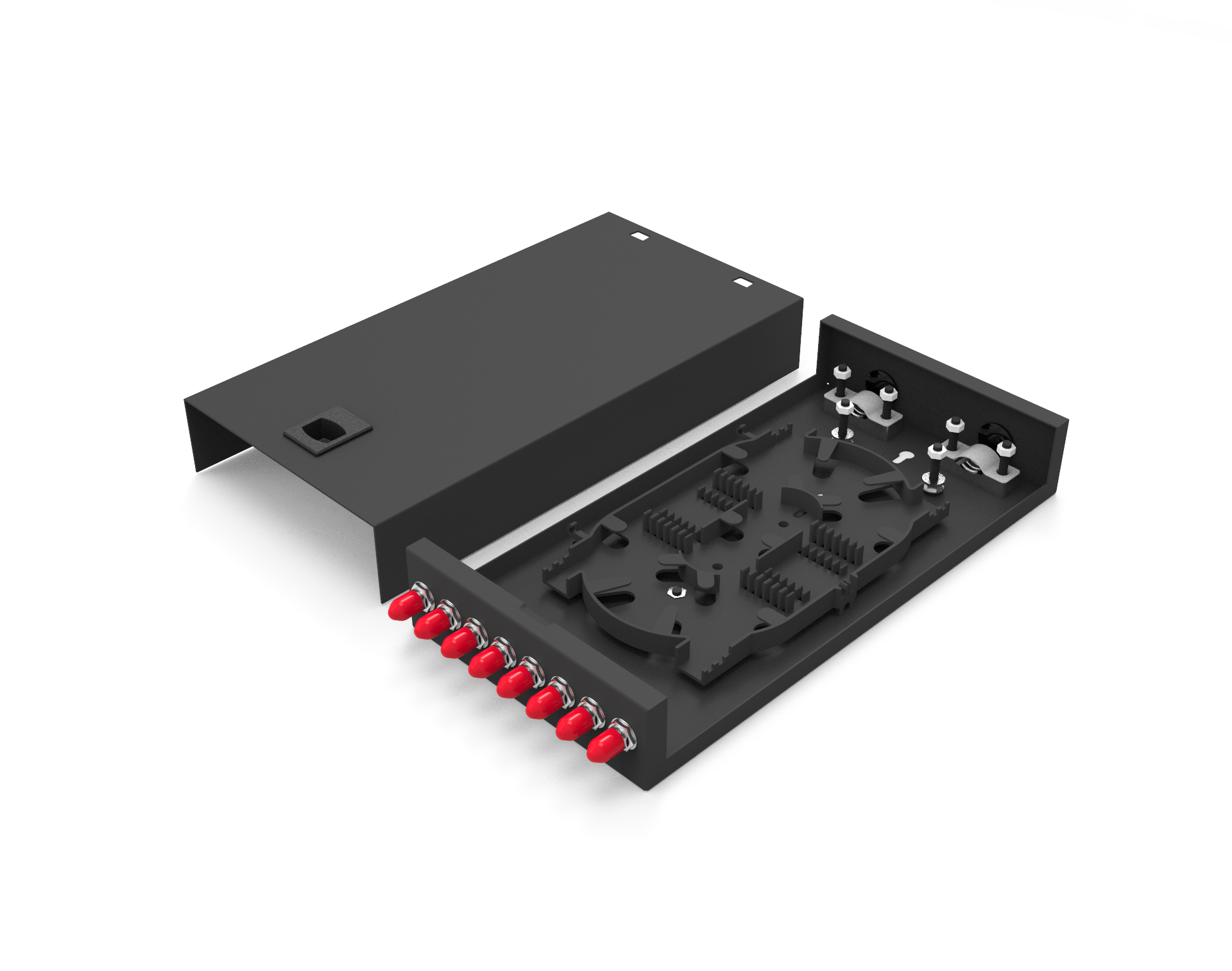
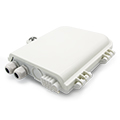
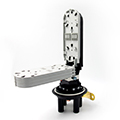
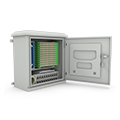



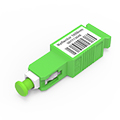
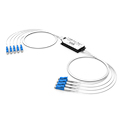

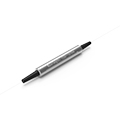
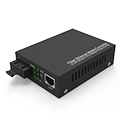
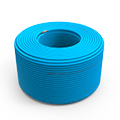
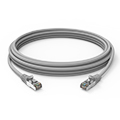
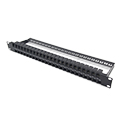
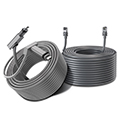
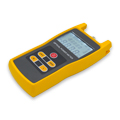
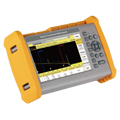
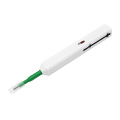
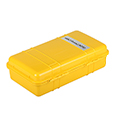
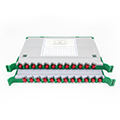
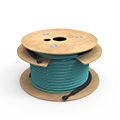


















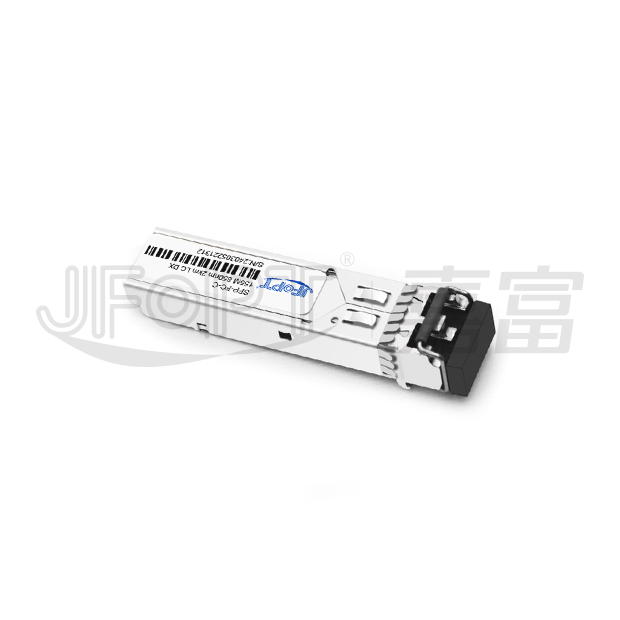
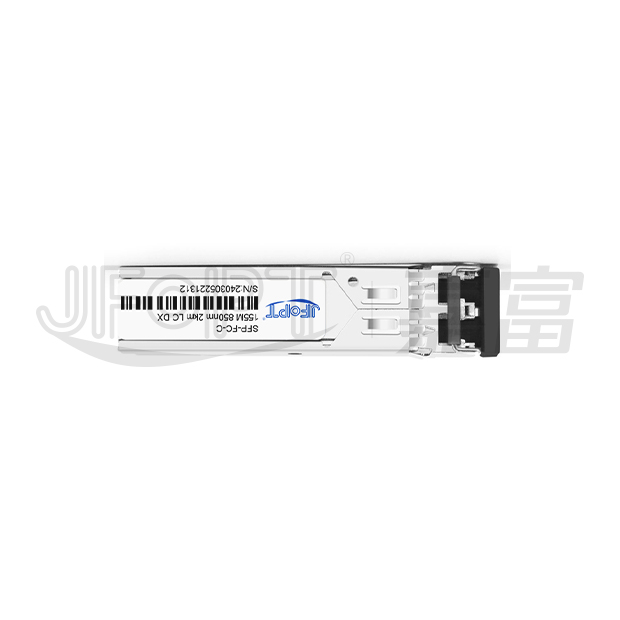
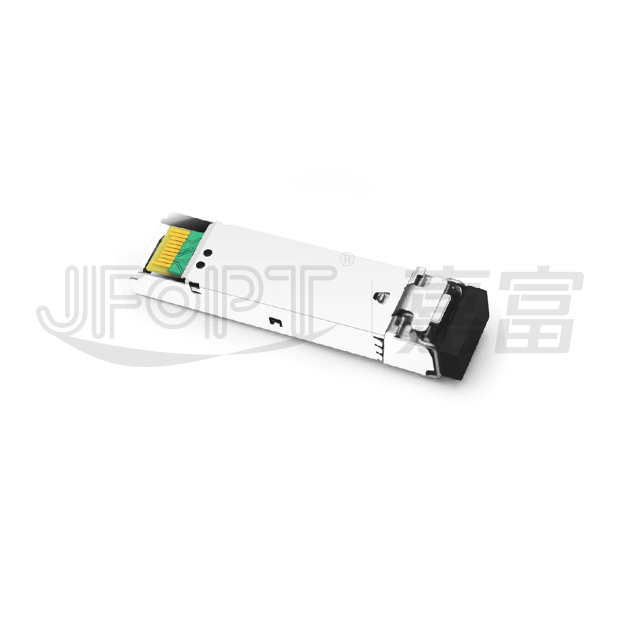
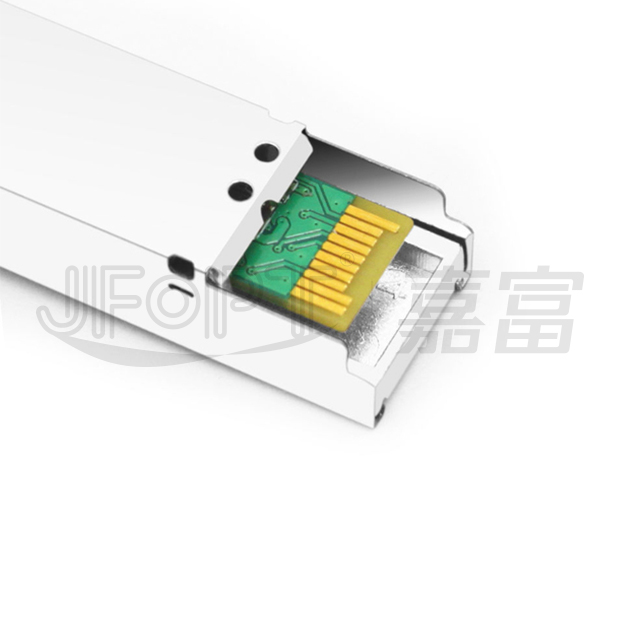
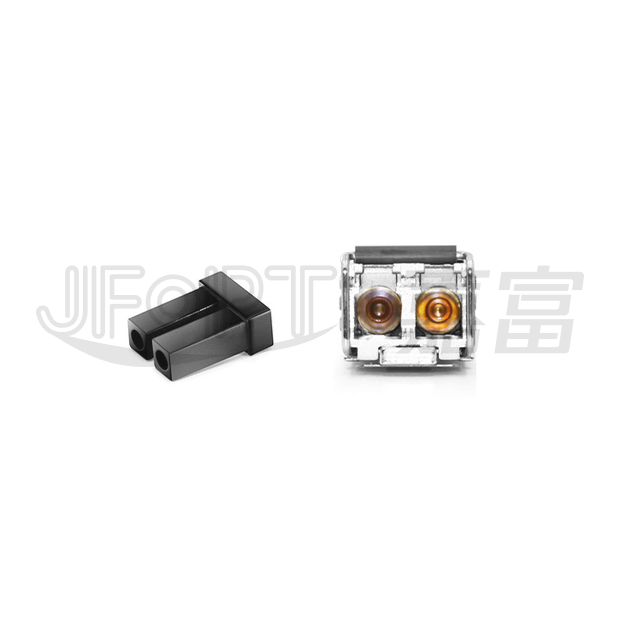

 Ann
Ann












